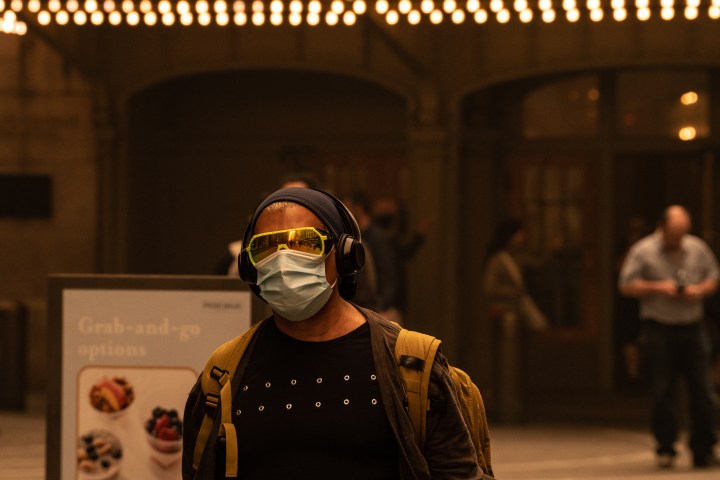
More wildfires mean worsening air quality. How do we adapt?
More wildfires mean worsening air quality. How do we adapt?

Large parts of North America are dealing with unhealthy air quality as smoke from wildfires in eastern Canada blows around the continent.
A drier, hotter environment due to climate change is making our world more susceptible to fires. As people try to adapt, they need tools to make the poor air quality more bearable.
73-year-old Peg Terry lives in Brooklyn. Looking at the wildfire smoke, she’s been reminded of a different kind of natural disaster — one she saw growing up in Illinois.
“The air has that yellow tinge that in the Midwest we would get before tornadoes,” she said.
Terry has a mild case of chronic obstructive pulmonary disease, or COPD. She feels breathless sometimes and is sensitive to smoke.
So, she’s been turning to tools she acquired during the pandemic. Outside, that means a KN95 mask.
Inside, “My daughter said to me, ‘did you turn on your air purifier?’ And I’m thinking ‘Oh no, it’s only for germs.’ Of course it will work for smoke,” Terry said.
She’s now thinking about getting a second air purifier. The prices for them vary. Some cost thousands. Though, University of Toronto civil engineer Jeffrey Siegel pointed out, there’s been a surge of people making their own, using a box fan and some filters, which can cost under $100.
“Those work fantastically for wildfires, if you do them well,” Siegel said.
There are high-tech solutions in the works, too.
Jay Koh of the Lightsmith Group, a climate-focused private equity firm, is looking at investing in strategic information systems that can provide people with not just hyper-local — but also “hyper-temporal” — warnings.
“It’s much more effective if I can say, ‘Look, your child should take an asthma inhaler now,’ because in the next half an hour, you’re going to have a severe impact in these areas,” Koh said.
Koh is also interested in technology that will tell us which trees are close to power lines or are at risk of being struck by lightning.
That could help us prevent some wildfires in the first place.
There’s a lot happening in the world. Through it all, Marketplace is here for you.
You rely on Marketplace to break down the world’s events and tell you how it affects you in a fact-based, approachable way. We rely on your financial support to keep making that possible.
Your donation today powers the independent journalism that you rely on. For just $5/month, you can help sustain Marketplace so we can keep reporting on the things that matter to you.

















